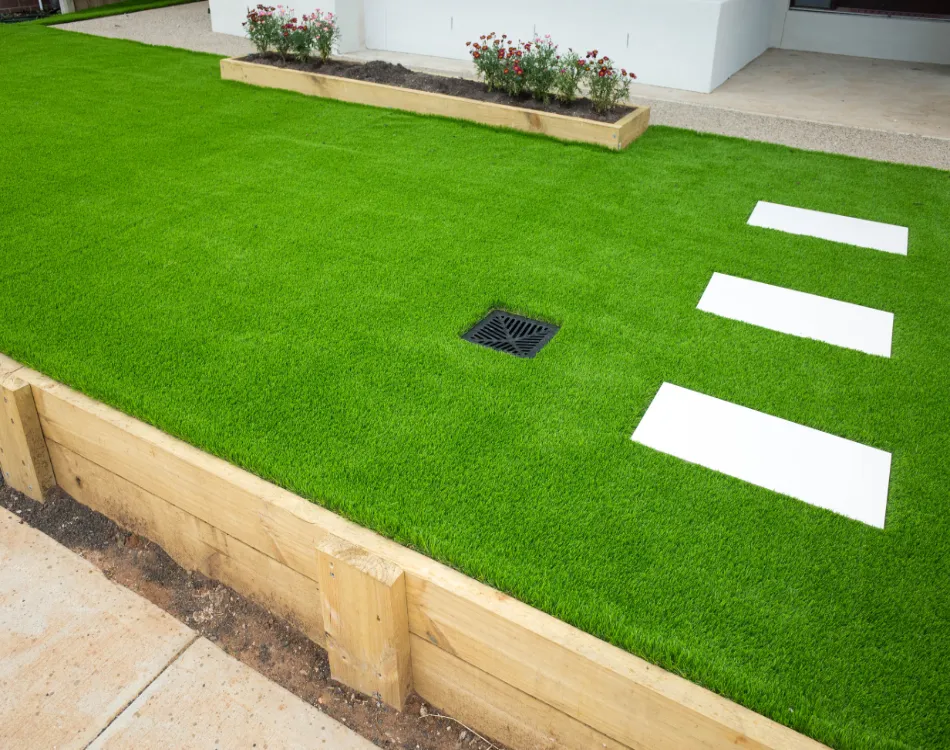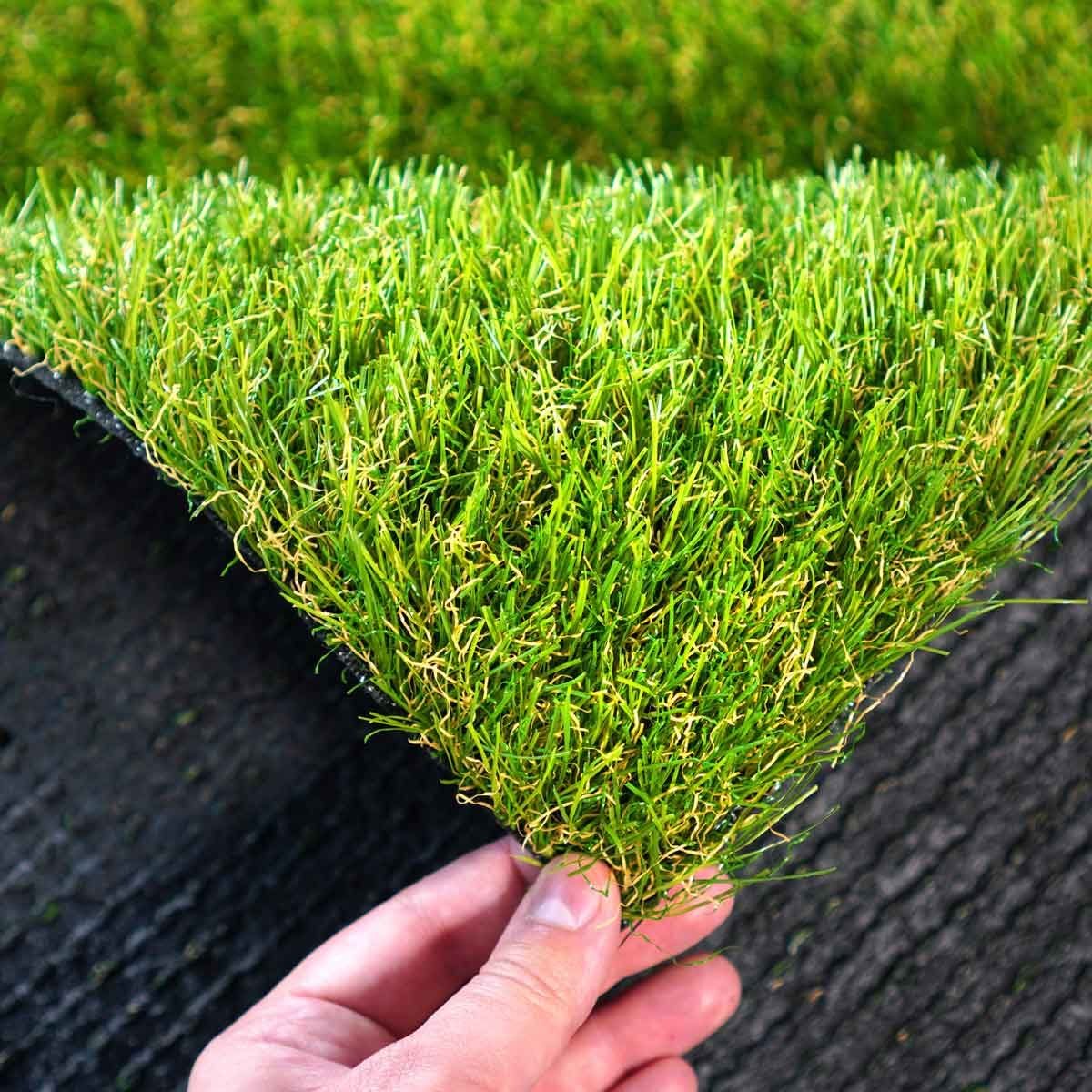Look Into the Environmental Conveniences of Opting for Synthetic Grass Solutions
The fostering of artificial lawn services offers an engaging opportunity to address pressing ecological obstacles. By significantly decreasing water use and decreasing the application of harmful chemicals, these options not just promote sustainable landscaping however additionally protect neighborhood environments.
Water Preservation Benefits
One of the most substantial benefits of synthetic lawn is its capability to save water. In contrast, synthetic grass does not require watering, substantially lowering the overall need for water sources.
By removing the requirement for normal watering, synthetic grass adds to lasting landscape practices and assists reduce the ecological impact of extreme water intake. Additionally, the preservation of water includes the decrease of drainage, which can lead to soil erosion and river contamination.
Furthermore, the installation of synthetic grass enables home owners and municipalities to allocate water resources a lot more successfully, concentrating on essential usages such as alcohol consumption water and farming. The change towards artificial lawn not only promotes accountable water use yet also aligns with wider ecological objectives intended at maintaining all-natural sources.
As neighborhoods significantly focus on sustainability, the water preservation benefits of synthetic grass provide a compelling case for its fostering in commercial and residential landscaping projects.
Reduced Chemical Use
The change to synthetic grass significantly lowers the dependence on chemical therapies typically used in all-natural lawn maintenance. Conventional lawn administration typically entails the application of herbicides, pesticides, and plant foods to advertise development and control bugs. These chemicals can pose threats to human wellness, regional wildlife, and the setting, contributing to dirt and water contamination.
In comparison, synthetic grass removes the requirement for these damaging materials. By minimizing the release of artificial compounds into the environment, fabricated turf advertises much healthier dirt and water systems.
In addition, the absence of chemical drainage linked with synthetic grass installments aids protect local waterways from air pollution, supporting aquatic life and maintaining biodiversity. Phoenix turf companies. As communities increasingly prioritize sustainable methods, choosing synthetic grass offers a feasible remedy that straightens with ecological conservation objectives. Via this change, residential or commercial property owners can appreciate lavish eco-friendly areas without jeopardizing environmental health and wellness, paving the means for an extra sustainable future
Reduced Carbon Footprint

In addition, the setup of synthetic grass can result in significant water conservation. Natural grass need considerable quantities of water for watering, which not just adds to the carbon footprint connected with water removal and treatment but additionally stress neighborhood water sources. On the other hand, artificial lawn requires minimal maintenance, calling for no watering, thus dramatically decreasing water usage and its linked energy expenses.
In addition, the longevity of synthetic turf adds to its decreased carbon effect. With a life-span of up to 15 years or even more, the requirement for frequent replacements is lessened, causing less waste and reduced power intake in manufacturing and disposing of traditional yard options. Overall, synthetic grass presents a sustainable option for environmentally aware landscape design.
Environment Conservation
Habitat preservation is a crucial consideration in the argument over landscaping choices, especially when comparing man-made turf to all-natural turf. Natural grass yards often require comprehensive maintenance, consisting of using herbicides, pesticides, and plant foods, which can negatively impact neighborhood communities. These chemicals can leach into the soil and rivers, anchor harming native vegetation and fauna and interfering with neighborhood environments.
On the other hand, synthetic grass presents a possibility to minimize the eco-friendly impact of landscaping. By deciding for synthetic yard, house owners can reduce the disruption of all-natural habitats connected with conventional lawn treatment techniques. Synthetic grass removes the requirement for harmful chemicals, consequently protecting neighboring wildlife and keeping the integrity of surrounding ecological communities. The setup of fabricated turf can lead to the conversion of former yard locations right into even more biodiverse landscapes, such as pollinator yards or indigenous plant areas, which can support regional wild animals.
Ultimately, the shift to man-made grass not only conserves water and reduces maintenance efforts but also fosters a more unified partnership between human tasks and the natural atmosphere, promoting environment preservation at the same time.
Long-Term Sustainability
Long-term sustainability is an important element in great post to read evaluating the benefits of man-made grass over traditional yard lawns. Among the most substantial advantages of synthetic turf is its toughness; it can have a peek here last as much as 15-20 years with marginal maintenance, whereas all-natural grass calls for regular reseeding and substitute. This longevity reduces the requirement for constant sources, such as water, fertilizers, and pesticides, which are essential for maintaining a healthy turf yard.
Furthermore, fabricated grass adds to a decrease in carbon exhausts related to yard care devices. Typical yards frequently need gas-powered mowers, leaners, and blowers, every one of which add to air pollution. Arizona turf. On the other hand, fabricated grass eliminates the requirement for such tools, promoting a cleaner environment
In addition, the production of fabricated turf progressively makes use of recycled products, boosting its sustainability account. As manufacturers embrace environment-friendly practices, the environmental footprint of man-made turf proceeds to lessen.

Conclusion
The adoption of synthetic grass remedies provides significant ecological benefits, including substantial water preservation, lowered dependence on unsafe chemicals, and a reduced carbon impact. Moreover, synthetic grass aids in maintaining all-natural environments by lessening land disturbance and advertising lasting sustainability via using long lasting products. Collectively, these factors emphasize the potential of artificial lawn to add positively to ecological health and supply a sensible option to conventional landscaping practices in an increasingly resource-conscious globe.
In contrast, artificial lawn does not require watering, substantially decreasing the total demand for water resources. By minimizing the launch of synthetic substances into the ecosystem, fabricated grass promotes healthier soil and water systems.
Furthermore, the setup of artificial grass can result in considerable water conservation. In comparison, synthetic lawn needs marginal maintenance, calling for no watering, thus dramatically decreasing water use and its connected power costs.
